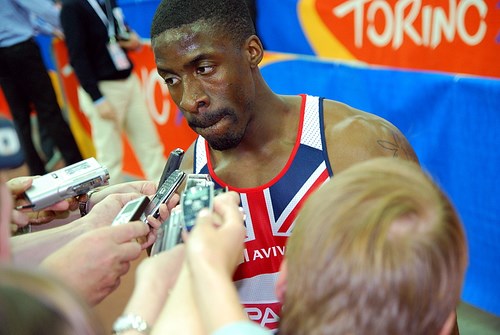BOA loses battle to keep lifetime bans for doping cheats

British sprinter Dwain Chambers, who was given a two-year ban for a doping offence in 2003, is one of the athletes who will now be allowed to try out for the Olympics in London this summer. Photo: Maxzix74/Flickr
01.05.2012
By Play the GameThe British Olympic Association (BOA) lost its battle with the World Anti-Doping Agency (WADA) in the Court of Arbitration for Sport (CAS), and must now ratify its policy of giving lifetime Olympic bans for doping. For a number of British athletes who have previously been banned for doping, this means that they will have the right to try to qualify for the British Olympic team for London 2012.
The BOA’s long time fight with WADA over its right to impose lifetime Olympic bans on drug cheats even after their suspensions were served was lost when CAS ruled that “the by-law is a doping sanction and therefore not in compliance with the Wada Code”.
BOA chairman Lord Moynihan told a news conference:
"The BOA are clearly very disappointed in the outcome. We must now move the discussion forward. We will seek far-reaching reform, calling for tougher and more realistic sanctions; a minimum of four years including one Games," writes BBC.
The BOA stated that a clean drug record was part of its selection criteria for the Olympics and had nothing to do with extending the punishment of the athletes.
CAS’ ruling states that the BOA must comply with WADA, but it added that the BOA and the IOC were free to try and persuade other stakeholders that lifetime bans might be the appropriate sanction for a doping offence and seek to add this to a future revised WADA code.
"At the moment the system in place does not permit what the BOA has done," CAS concluded in its press release.
In a statement following the verdict, WADA President, John Fahey, said: “WADA has spent the last decade harmonizing the fight against doping in sport across the world by creating one set of rules in consultation and in accordance with the wishes of all its stakeholders, both sport and government. In order to achieve this harmonization, the rules have had to be proportionate and respectful of the rights of individuals within the framework of international law. They are not based on emotive arguments or the wishes of any one signatory or individual.”
See the full CAS press release here
See the WADA statement here
SOURCE: BBC, CAS, WADA





